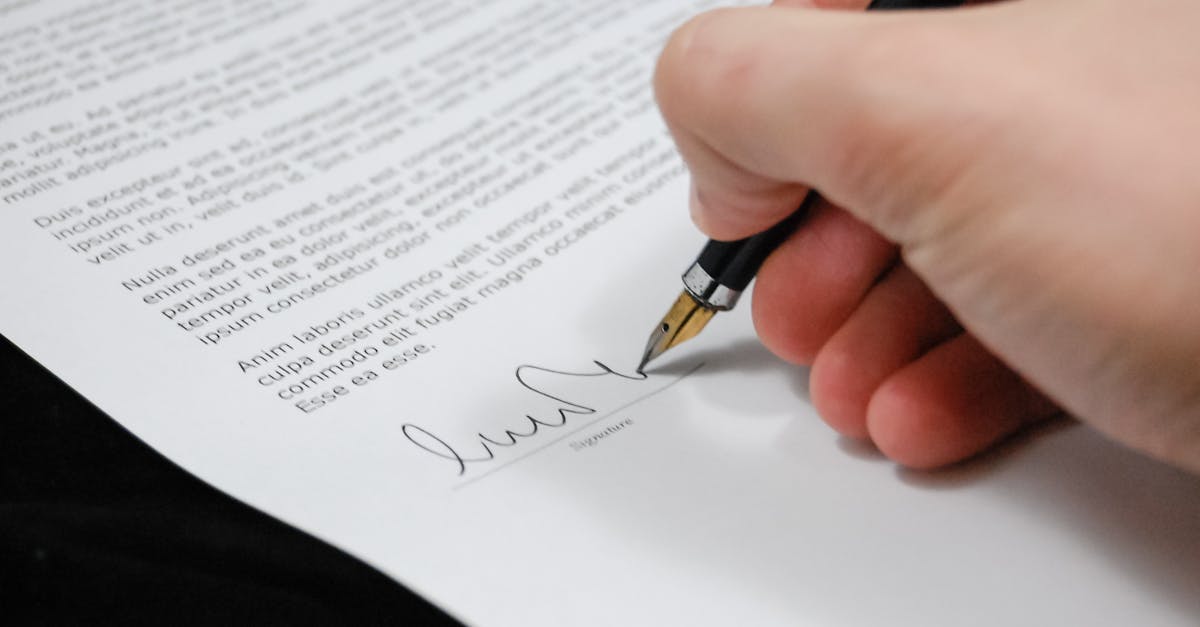
Precision Legal Advisors provides top-notch legal document drafting services to clients in need of precise and accurate legal paperwork. Our team of experienced lawyers specialize in creating a wide variety of legal documents, including contracts, agreements, wills, and more. We take the time to fully understand our clients' needs and provide personalized solutions to ensure that all legal documents are tailored to meet their specific requirements. With our attention to detail and expertise in the field, clients can trust that their legal paperwork will be drafted with the highest level of professionalism and accuracy. Trust Precision Legal Advisors to handle all of your legal document drafting needs with precision and care.
Common Legal Writing Mistakes to Avoid
Legal writing demands precision and clarity to effectively communicate complex concepts. One common mistake to avoid is utilizing overly complicated language that may confuse rather than clarify. It is crucial to aim for simplicity in legal documents by using clear and concise language to ensure the message is easily understood by all parties involved. Additionally, another prevalent error is neglecting to proofread thoroughly for grammar and spelling mistakes. Errors in grammar and syntax can detract from the credibility of the content, leading to misunderstandings or potential legal implications.
Another critical mistake to steer clear of in legal writing is ambiguity. Ambiguous language can lead to misinterpretation of the document's intended meaning, which may result in disputes or legal challenges. To prevent this, it is essential to define terms clearly, provide specific details, and ensure that the document is logically structured. By being meticulous in word choice and sentence structure, legal professionals can effectively convey their message and mitigate the risks associated with misunderstandings or misinterpretations.
Addressing Grammar and Formatting Errors in Legal Content
Addressing grammar and formatting errors in legal content is paramount to ensure clarity and professionalism in legal documents. Precision is crucial in legal writing, and errors can lead to misinterpretation or ambiguity in conveying legal terms and conditions to clients, judges, or other legal professionals. Usage of the passive voice should be minimized as it can obscure clarity and weaken the impact of legal arguments. By actively rephrasing sentences to emphasize the subject performing the action, legal documents can become more straightforward and persuasive.
In addition to avoiding passive voice, maintaining consistency in pronoun usage is essential in legal writing. Pronouns such as 'he,' 'she,' or 'they' should be clearly assigned to specific individuals or entities to prevent confusion. Moreover, attention to detail in formatting, such as ensuring proper indentation, spacing, and alignment, contributes to the overall professionalism of legal documents. By adhering to standard formatting guidelines, legal professionals can enhance the readability and comprehension of their content, fostering effective communication with clients and other stakeholders in the legal field.
Role of Technology in Legal Document Drafting
Technology plays a crucial role in modern legal document drafting processes, revolutionizing the way lawyers create and manage legal content. With the rapid advancements in legal technology, legal professionals can now leverage various software solutions to streamline their drafting workflows efficiently. These tools help in automating repetitive tasks, ensuring accuracy, and enhancing overall productivity in drafting precise and error-free legal documents.
One significant advantage of incorporating technology in legal document drafting is the availability of predictive analytics to assist lawyers in predicting outcomes of legal cases based on historical data and trends. This predictive analysis empowers legal professionals to make informed decisions when drafting documents, thereby increasing the likelihood of success in legal proceedings. Additionally, technology enables real-time collaboration among team members, regardless of their physical location, facilitating seamless communication and enhancing the overall efficiency of the drafting process.
Leveraging Software Solutions for Efficient Drafting Processes
Leveraging software solutions plays a crucial role in streamlining the drafting processes for legal documents. These technologies offer various tools and features that can enhance efficiency and accuracy in creating legal content. By utilizing software designed for legal professionals, lawyers can automate repetitive tasks, organize information effectively, and mitigate the risk of errors in their documents. With features like templates, version control, and cloud storage, legal software can help practitioners save time and focus on the substance of their work.
Moreover, legal drafting software often includes functionalities that facilitate collaboration among team members and enable seamless communication during the drafting phase. These tools allow attorneys to work simultaneously on a document, track changes, and provide feedback efficiently. Through the integration of machine learning and artificial intelligence, these solutions can also analyze data, predict outcomes, and assist in decision-making processes. Overall, leveraging software solutions empowers legal professionals to work more efficiently, improve the quality of their drafts, and deliver exceptional services to their clients.
Understanding Legal Research Requirements
Legal research is a crucial aspect of drafting accurate and effective legal documents. Conducting comprehensive research helps ensure that the information included in the document is up to date and legally sound. By leveraging various resources such as case law databases, statutes, regulations, and legal textbooks, legal professionals can strengthen the basis of their arguments and provide valuable insights to support their clients' needs.
Moreover, staying informed about recent legal developments and precedents is essential for producing high-quality legal documents. This includes regularly checking for updates in legislation, court decisions, and regulatory changes that may impact the subject matter at hand. By staying proactive in their research efforts, legal professionals can demonstrate a thorough understanding of the legal landscape and provide informed advice to their clients.
Conducting Thorough Research to Support Legal Document Drafting
Conducting thorough research is a foundational step in creating legally sound and compelling documents. To support legal document drafting effectively, one must delve deep into relevant cases, statutes, regulations, and other legal sources. This process helps in building a solid foundation of knowledge that informs the content of the document. Ensuring accuracy and relevance requires conducting comprehensive research to understand the intricacies of the law applicable to the specific case or situation at hand. By scrutinizing legal precedents and authoritative sources, legal professionals can strengthen their arguments and enhance the persuasiveness of their documents.
Moreover, in the realm of legal research, the ability to analyze and interpret complex legal concepts is essential. Understanding the nuances of legal principles and their applications can significantly impact the outcome of the document drafting process. Legal professionals need to critically evaluate various sources of law to extract relevant information that supports their arguments. By synthesizing information from different sources and disciplines, they can present a comprehensive and well-rounded perspective on the legal issues at hand. This level of depth in research not only ensures the accuracy of the documents but also demonstrates a high level of competence and expertise in the field of law.
FAQS
What are some common legal writing mistakes to avoid?
Some common legal writing mistakes to avoid include using complex language unnecessarily, failing to cite sources properly, and neglecting grammar and formatting errors.
How can I address grammar and formatting errors in legal content?
To address grammar and formatting errors in legal content, proofread your document carefully, use grammar and spell-check tools, and ensure consistency in formatting throughout the document.
What role does technology play in legal document drafting?
Technology plays a significant role in legal document drafting by offering software solutions that can streamline the drafting process, improve accuracy, and enhance collaboration among legal professionals.
How can I leverage software solutions for efficient drafting processes?
You can leverage software solutions for efficient drafting processes by using tools that automate document creation, provide templates for different types of legal documents, and enable real-time collaboration and editing.
What is the importance of conducting thorough legal research in document drafting?
Conducting thorough legal research is essential in document drafting to ensure that your content is accurate, supported by relevant laws and cases, and able to withstand scrutiny in legal proceedings.







